- Home
- Robert Hugh Benson
The Dawn of All Page 14
The Dawn of All Read online
Page 14
(I)
He awoke suddenly, at some movement, and for an instant did notremember where he was.
For nearly a week they had stayed on at Versailles; and each daythat had passed had done its share in making this fairyland seemmore like a reality. But that strange subconscious self of his,for which even now there seemed no accounting, was stillobstinate; it still assured him that the world ought not to belike this, that religion ought not to be so concrete andeffective--that he would awake soon and find himself in somedesolate state of affairs where Faith, hemmed in by enemies,still fought for very life against irresistible odds. It was atnight and at morning that the mood came on him most forcibly;when instinct, free from facts, and ranging clear of the will'sdominion, asserted itself most strongly, and as he awoke thisnight it was on him again.
He looked round the dark little room with bewildered eyes; thenhe fumbled with a button, and all was flooded with light.
He was lying in a little spring-bed, set within two padded sides,like a berth in a steamship. And beside him was the closed bureauwhich he perceived to be washing arrangements in disguise;overhead protruded a broad shelf; on the wall, above a littlecouch, hung silk curtains over a window; and, as they swayedslightly with some movement he caught sight of glass beyond. Onthe door, at the foot of his bed, hung his cassock, and thepurple cincture that lay across it recalled him to at least apart of the facts. The cabin was upholstered and painted in cleanwhite, and an electric globe emerged from the ceiling.
He was next conscious of cold, and instinctively leaned forward todraw the quilt farther over his knees. Then, with a flash, heremembered, and, in spite of the cold, was out of bed in a moment,kneeling on the couch and peering out through the curtains.
At first he could see nothing at all. There was but anunfathomable gulf beyond the glass. He stood up on the couch, anddrawing the curtains behind his head to shut out the light, heonce more stared out. Then he began to see.
At first he could see nothing at all. There was but an unfathomablegulf beyond the glass. He stood up on the couch, and drawing thecurtains behind his head to shut out the light, he once more staredout. Then he began to see.
Immediately opposite him glimmered a huge white outline--in theincalculable night it might be a hundred yards or a mile away. Itwas of irregular outline, for the star-strewn sky showed in patchesand rifts above it. And this white mass curved away beneath, underthe ship in which he travelled, till it met, at a point which hecould but just discern, a blackness that rose to meet it.
Then, as his eyes grew accustomed to the dark, he began to seethat the huge whiteness was flitting past, steadily andleisurely, from right to left; that it was streaked with shadowsor clefts; and that following it, as in a sliding procession,came another, like it, yet (it seemed) more distant.
All this time, too, the silence was profound. There was but asoft humming note somewhere in the air, and the faintest sense ofvibration in the metal-work on which his hands were pressed. Oncetoo he heard a footstep pass softly and rhythmically overhead, asif some watcher moved up and down the length of the upper deck.
The man dropped the curtains and sat back on his heels, tryingto force into his imagination the facts that he now perceivedand remembered.
They had left St. Germains last night, after dining atVersailles. They were now crossing the Alps. They would be inRome for Mass and breakfast. . . . They were traversing at thismoment, no doubt, only a thousand feet high, one of those passesup which (he thought he remembered from history) the oldrailway-trains had been accustomed to climb, yard by yard andspiral by spiral, a hundred years before . . .
In a minute or two he leaned forward and stared again, once moreclosing the curtains behind his head.
The sky seemed a little brighter, he thought, than when he hadlooked just now. Perhaps the moon was hiding somewhere. Andcertainly the sky was more in evidence. Far away to the leftbehind, passing even as he looked, moved those gigantic hornsof white, as if the ship stood still and the earth turnedbeneath; and below now, sloping to the right, lay long lines ofdarkness, jutting here and there with a sudden crag against theblaze of stars. It was marvellous, he thought, how still alllay; there was a steady hiss, now heard for the first time, asthe air tore past the glassy sides of the bird-shaped ship, asthin as the cry of a bat.
He shifted on his knees a little, and staring forwards, saw farahead and at what seemed an incalculable distance something thatbaffled him entirely, for it changed its aspect every instantthat he watched.
At first it was no more than a patch of luminosity; and he thoughtit to be, perhaps, a lighted town. But the character of it waschanged as he formulated his thought and three brilliant spotslike blue stars broke out on a sudden, and these three starsshifted their positions. He kept his eyes on these, marvelling;and, with something very like fear, saw that they were approachingupwards and onwards with the swiftness of thought.
Up and on they came. He shrank back a little, instinctively; andthen, as he leaned forward once more, determined to understand,shrank back with a sharp indrawing of breath, as there whirledpast, it appeared only a few yards away, a flare of brilliantblue lines, in the midst of which passed a phantom-like body in amist and accompanied by a musical sound (it seemed) ofextraordinary clarity and beauty, that rose from a deeporgan-note to the shrill of a flute, and down again Into a bassand a silence. . . .
He smiled to himself as he climbed back into bed a minute or twolater, when he had reconstructed the phenomena and interpretedthem. It was but another volor, bound northwards, and it hadprobably passed at least half a mile away.
Well, he must sleep again if he could. They would be inRome by morning.
* * * * *
They had delayed their departure from Versailles to the lastpossible moment, since France was, after all, under thecircumstances, one of the best places in the world for Monsignorto pick up again the threads of life. For one thing, it was nearto England--English was spoken there amongst the educated almostas frequently as French; yet it was not England, and Monsignor'splight would not cause him any great inconvenience. Further,France was at present the theatre of the world's interest, sincethe Emperor was there, and on the Emperor's future dependedlargely the destinies of Europe: his conversion, it was thought,might be the final death-blow to Socialism in his dominions.
Monsignor had employed his time well. Not only had he learnedaccurately the general state of the world, but morning by morninghe had familiarized himself with his own work, and felt, by now,very nearly competent to finish his lessons in England. CardinalBellairs communicated with him almost every day, and professedhimself delighted with the progress made. Finally he had talkedLatin continually with Father Jervis in preparation for Rome, andwould have passed muster, at least, in general conversation.
* * * * *
The two motored into the city from the volor-station outside, andeverywhere as they went through the streets and crossed the Tiberon their way to the Leonine City, where they were to lodge, wereevidences of the feast.
For the whole route from Vatican to Lateran, which they crossedmore than once, was one continual triumphal way. Masts had beenerected, swathed in the Papal colours and crowned with garlands;barriers ran from mast to mast, behind which already the crowdswere beginning to gather, though it was hardly past six o'clockin the morning; and from every window hung carpets, banners, andtapestries. The motor was stopped at least half a dozen times;but the prelate's insignia passed them through quickly; and itwas just half-past six as they drew up before an old palacesituated on the right in the road leading from the Tiber to theVatican, and scarcely a quarter of a mile away from St. Peter's.
Monsignor glanced up at the carved and painted arms above thedoorway and smiled.
"I did not know you were bringing me here," he said.
"You know it?"
"Why, it's the old palace where the kings of Englandlodged, isn't it?"
Father Jervis smiled.
"You
r memory's improving," he said.
Then a magnificent servant came out, bowed profoundly, and openedthe door of the car.
"By the way," said Father Jervis as they went in, "I'd better go andenquire the details at the Vatican. You might give me your card.I'll go at once, and then come back and join you at breakfast."
It was a pleasant little suite of rooms, not unlike inarrangements to those of Versailles. The windows looked out onthe central court, where a fountain played, and the roomsthemselves were furnished in the usual Roman fashion--paintedceilings, stone floors, and a few damask hangings.
Monsignor turned to the servant who was superintending the twoEnglishmen they had brought.
"I've not been in Rome for some time," he said in Latin. "Tell mewhat this house is now?"
"Monsignor, it is the English palace. Monsignor is in theapartment of His Eminence Cardinal Bellairs."
"The King himself stays here?"
"It is His Majesty's palace," said the man. "The Prince Georgearrived two days ago. His Highness is in the apartment below."
Monsignor smiled. He understood now Father Jervis' evasions as towhere they were to stay in Rome. Plainly it was determined thathe should have a front seat at all ceremonies.
Ten minutes later, as he came out of his bedroom, Father Jervishimself came in.
"You have your choice, Monsignor," he said. "As a DomesticPrelate you have the right to walk in the procession (here is thepermit), or as occupying rooms here we can, if you prefer, seethe procession from the front windows."
"Tell me what the programme is."
"At nine the procession leaves St. Peter's to go to theLateran--at least they call it nine. There the Holy Father singsMass, as bishop in his own cathedral. On the return of theprocession, I suppose about midday, the Holy Father visits thetomb of St. Peter. Then this afternoon he is present at Vespersin St. Peter's; and afterwards gives the blessing _Urbi et Orbi_from the window as usual."
"What would you advise?"
"Well, I should advise your remaining here till mid-day.There's no use in overdoing it. We can see everythingadmirably. Then we can go into St. Peter's for the visit to thetomb, and come back here to dejeuner. After that we can arrangeabout the rest of the day."
"Very good. Then let us have something to eat at once."
"Who's Prince George of England?" demanded Monsignor presently asthey sat over coffee.
Father Jervis laughed.
"You've found that out, have you? Yes, he's here, of course.Well, he's the second son: he's only a boy. He's over here torepresent the King. Every sovereign sends a prince of theblood-royal for to-day. Even the German Emperor."
"Do you mean from Europe?"
"I mean from the whole world. You see the East is scarcely threedays away by the fast volors; so even the Chinese----"
"Do you mean that China and Japan send representatives?"
"Certainly. Japan is Christian of course, anyhow; and China hasat least one or two Christian princes of the blood."
"By the way, what about Russia?"
"Well, what about it?"
"Is it Catholic?"
"My dear Monsignor, it's been Catholic for thirty years."
"Oh dear me! You must lend me some more histories. . . . Whatmade it Catholic?"
"Common sense, I suppose. How they could have stood out for solong is the only thing that puzzles me."
"But the Petrine claims----"
"Why, the Petrine claims were the very point. Facts were toostrong. If you look back over history you can't help seeing thatthe only Christian body that was ever able to resist Erastianismon the one side and endless division on the other has been theChurch built on Peter. They began to see it nearly a hundredyears ago in Russia and Greece. Then the Emperor of Russia wassecretly reconciled in 1930; and ten or twelve years later hispeople followed him."
"Then there's no more dispute? What about the _Filioque_ clause?"
"Why, when Peter is accepted, the rest follows."
"Then you may say that the entire civilized world is representedin Rome to-day?"
"Certainly. You'll see the princes in the procession."

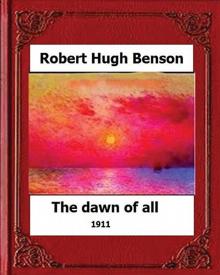 The Dawn of All
The Dawn of All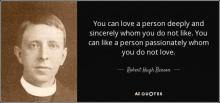 By What Authority?
By What Authority? The King's Achievement
The King's Achievement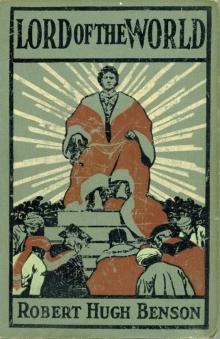 Lord of the World
Lord of the World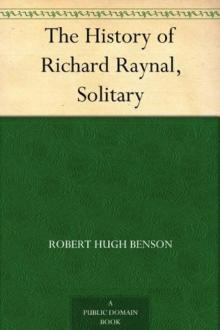 The History of Richard Raynal, Solitary
The History of Richard Raynal, Solitary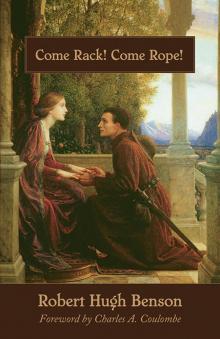 Come Rack, Come Rope
Come Rack, Come Rope